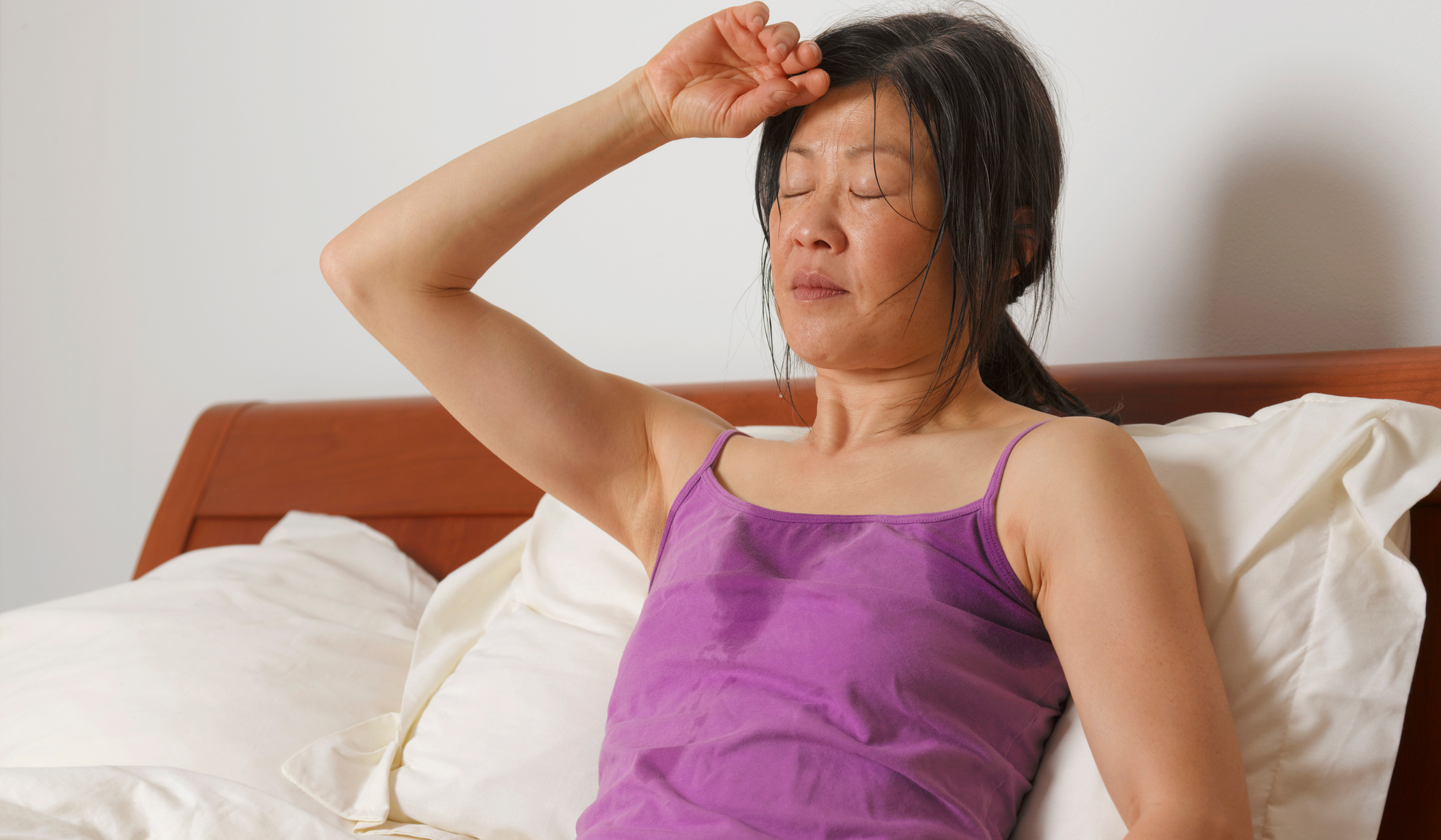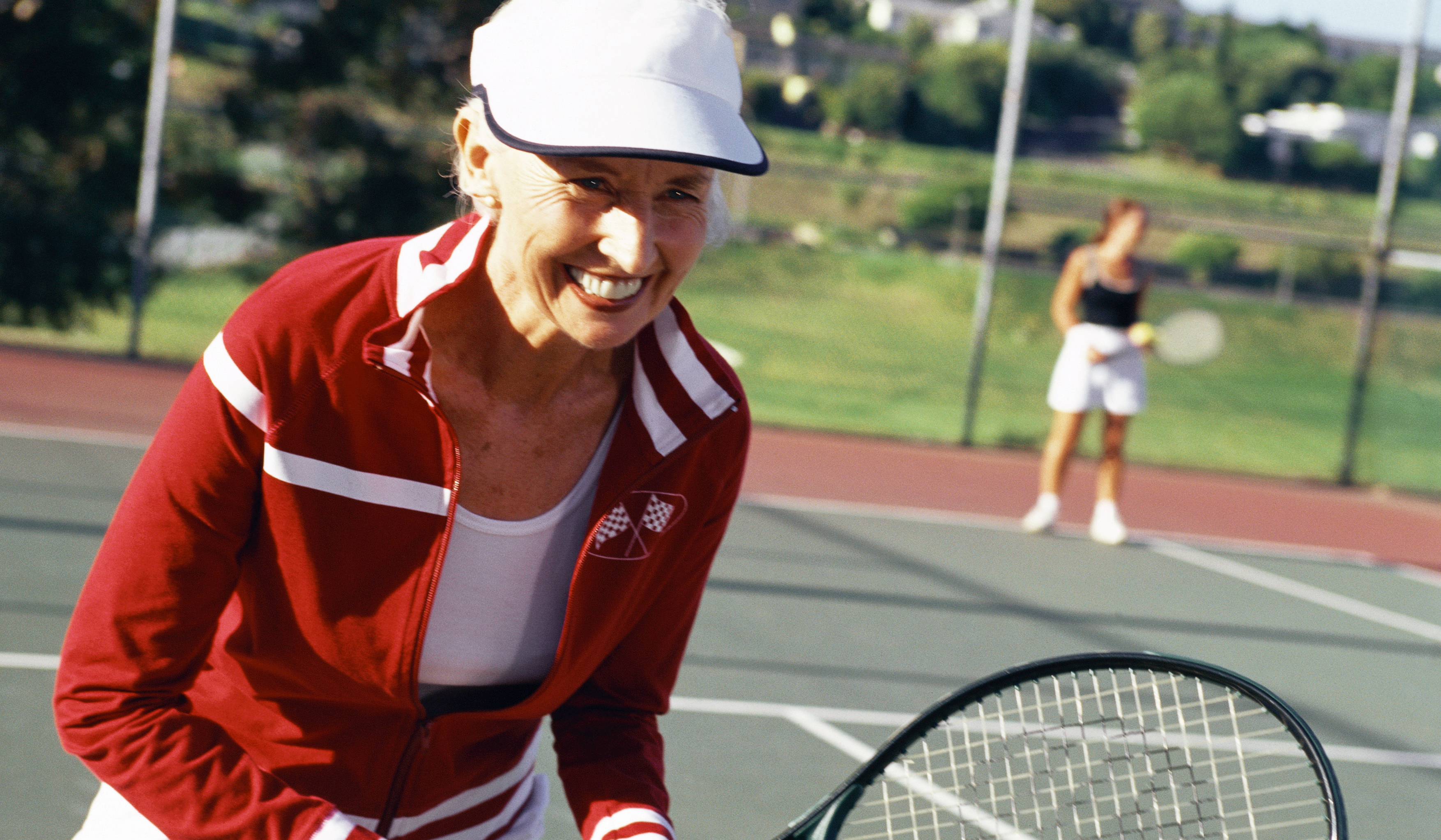Menopause symptoms: What to look for and how to treat them
We look at some of the best ways to tackle common menopause symptoms


Start your week with achievable workout ideas, health tips and wellbeing advice in your inbox.
You are now subscribed
Your newsletter sign-up was successful
It’s no secret menopause symptoms can very greatly from person to person. Some people don’t find they gain much weight at all, while others find it difficult to keep the pounds off. Some get severe hot flushes, while for others, the sensations are very mild. It makes for a stressful time of life.
However, although every woman experiences this time period differently, science has determined how to mitigate some of the most common sysmptoms found in menopausal women. From the best menopause supplements for a particular symptom to tackling menopausal weight gain head-on, this is how to mitigate its impact on your day-to-day life.
Common menopause symptoms:
- Hot flushes
- Night sweats
- Mood changes
- Weight gain
- Sleep disturbances
- Declining collagen
- Vaginal dryness
- Headaches and migranes
First… a word on HRT
It’s impossible to talk about menopause without acknowledging the controversy over HRT, or hormone replacement therapy. There are reports HRT can cause an increase in risk for some types of cancers, such as breast cancer. However, according to the UK's NHS, HRT can relieve most menopausal symptoms – including hot flushes, mood swings and reduced sex drive – and that recent evidence shows the risks to be small.
“For the majority of women who start taking HRT when they are under the age of 60, the benefits of HRT really do outweigh any risks,” says Dr Louise Newson, a leading menopause specialist. “This means it is safe to take and can provide positive health benefits, especially for your bones and heart.”
Whether you chose to take HRT is ultimately a personal choice, made with your doctor and it should, in any case, be used in conjunction with other healthy lifestyle changes. So what else can help?

How to tackle hot flushes and night sweats
Hot flushes – caused by fluctuating hormones – can cause embarrassment, anxiety and sleep disruption.
- Try CBT: As stress can worsen flushes, Women’s Health Concern (the patient arm of the British Menopause Society) suggests Cognitive Behavioural Therapy to help reduce the intensity of flushes, as well as keeping a symptom diary to track potential triggers.
- Make diet changes: Dr Newson points to a 2019 study in Climacteric which found an increased intake of oily fish and vitamin B6 may also help improve flushes. The best fish oil supplements and best vitamins for women over 50 can also confer these benefits.
How to mitigate mood changes
Fluctuating hormones can cause psychological symptoms – such as mood swings, anxiety, depression and brain fog – and the link to the menopause can sometimes be missed.
Start your week with achievable workout ideas, health tips and wellbeing advice in your inbox.
- Seek support: Not knowing why you are feeling this way can cause its own anxiety so speak to your doctor and do your research. Try the Balance App created by Dr Newson to provide menopausal women with support and advice. Dietitian and menopause specialist Nigel Denby also hosts an expert-led facebook group, Harley Street at Home, with regular ‘ask the expert’ sessions.
- Vitamin D: “Many researchers believe vitamin D is vital to healthy brain function and studies suggest it might play an important role in regulating mood and warding off anxiety and depression,” says Dr Newson. If you find yourself working in a dingy office space, the best SAD lamps mimic sunlight, which has been proven to boost mood.

How to put the kibosh on menopausal weight gain
“There’s good evidence 75% of women will gain up to 10kg in perimenopause,” says Nigel. “This is predominantly due to declining oestrogen (which changes the way women lay down fat) as well as a steady decline in muscle tissue, which slows metabolism."
- Balance hormones: "If you're feeling ghastly - with hot flushes and mood swings - it's difficult to embark on the lifestyle changes needed. Balancing your hormones and HRT can help you get to a place where you are able to make the necessary changes."
- Get holistic: “It’s tempting to go harder at what worked in your 20s and 30s but your body is changing,” says women’s health coach Baz Moffat. “We become more susceptible to the stress hormone cortisol around menopause, which encourages our bodies to hold onto fat.
- "This can be further spiked by missed meals, disrupted sleep and exercise that's too long and hard. Instead of another HIIT session, you might need some restorative yoga to help you sleep, or to manage your blood glucose levels by switching to more complex carbs.”
How to avoid sleep disturbances
Tossing and turning all night? Sleep disturbance is common from the perimenopause onwards.
- Progesterone and magnesium: “Natural progesterone can improve sleep by regulating neurotransmitters in the brain. It works alongside melatonin (a naturally produced hormone) to control your body clock,” says gynaecologist and women’s health specialist Dr Saadia Meyer.
- “Magnesium will also support those pathways. Since melatonin levels naturally reduce from perimenopause, increasing your intake of magnesium now can be particularly beneficial.”

How to lessen the impact of declining collagen
Declining oestrogen leads to a decline in collagen – cue wrinkles, sagging and dry skin.
Protect your collagen: “The most important changes you can make are to cut out habits that cause the skin collagen levels to decline, such as damaging sun exposure and smoking,” says consultant dermatologist Dr Sajjad Rajpar. “Once these issues are addressed, serums containing anti-aging ingredients that can help preserve the skin collagen levels - including topical retinoids and vitamin C - can be helpful.”
Eat more fruit and veg: “Our body can manufacture collagen from vitamin C so make sure you’re eating plenty of fruit and vegetables,” says Dr Glenville. Try one of the best vegan cookbooks for loads of fruit and veg-based recipe ideas, even if you're not going vegan day-to-day.
- Protect your collagen: “The most important changes you can make are to cut out habits that cause the skin collagen levels to decline, such as damaging sun exposure and smoking,” says consultant dermatologist Dr Sajjad Rajpar. “Once these issues are addressed, serums containing anti-aging ingredients that can help preserve the skin collagen levels - including topical retinoids and vitamin C - can be helpful.”
- Eat more fruit and veg: “Our body can manufacture collagen from vitamin C so make sure you’re eating plenty of fruit and vegetables,” says Dr Glenville. Try one of the best vegan cookbooks for loads of fruit and veg-based recipe ideas, even if you're not going vegan day-to-day.
Take on vaginal dryness
“Oestrogen helps maintains the elasticity and strength of our body tissues,” says Dr Meyer. “As oestrogen depletes it can cause vaginal dryness, discomfort and repeated urinary tract infections.”
- Topical oestrogen: “Topical oestrogen – applied locally to the area – is effective and safe so speak to your doctor,” says Dr Meyer.
- Omega 3: Increasing the oily fish in your diet may also help. “Omega 3 fatty acids can help keep everything lubricated," says Dr Glenville.

Eliminate headaches and migranes
According to Women’s Health Concern, headaches affect 90% of peri and menopausal women.
- Mirena coil: “If your headaches are cyclical and linked to troublesome periods, the Mirena coil may make them less likely to occur,” says Professor Anne MacGregor, a headache and women’s health specialist.
- The right HRT: “HRT can help reduce the likelihood of migraines by controlling menopause symptoms but some forms can create hormone fluctuations which trigger migraines,” says Professor Anne MacGregor. She recommends women ask their doctor for oestrogen patches or gel. “These maintain stable hormone levels with few fluctuations”.
Claire is a freelance health, fitness and food journalist who has written for titles including Women’s Health, Top Santé, Woman & Home, Feel Good You, the Telegraph and Independent. She has a passion for being outside in nature and you’re more likely to find her walking in the woods or joining an exercise class in the park than pounding a treadmill in the gym. She also has a special interest in nutrition and healthy eating, having previously been Food Editor at Top Santé magazine. Her top fitness tip? Take your exercise outdoors wherever possible. It has been shown to boost the physical as well as mental health benefits of a workout and also to make you more likely to want to do it again!
